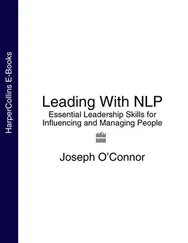Dale Carnegie - How To Win Friends And Influence People
Здесь есть возможность читать онлайн «Dale Carnegie - How To Win Friends And Influence People» весь текст электронной книги совершенно бесплатно (целиком полную версию без сокращений). В некоторых случаях можно слушать аудио, скачать через торрент в формате fb2 и присутствует краткое содержание. Жанр: Психология, на английском языке. Описание произведения, (предисловие) а так же отзывы посетителей доступны на портале библиотеки ЛибКат.
- Название:How To Win Friends And Influence People
- Автор:
- Жанр:
- Год:неизвестен
- ISBN:нет данных
- Рейтинг книги:3 / 5. Голосов: 1
-
Избранное:Добавить в избранное
- Отзывы:
-
Ваша оценка:
- 60
- 1
- 2
- 3
- 4
- 5
How To Win Friends And Influence People: краткое содержание, описание и аннотация
Предлагаем к чтению аннотацию, описание, краткое содержание или предисловие (зависит от того, что написал сам автор книги «How To Win Friends And Influence People»). Если вы не нашли необходимую информацию о книге — напишите в комментариях, мы постараемся отыскать её.
How To Win Friends And Influence People — читать онлайн бесплатно полную книгу (весь текст) целиком
Ниже представлен текст книги, разбитый по страницам. Система сохранения места последней прочитанной страницы, позволяет с удобством читать онлайн бесплатно книгу «How To Win Friends And Influence People», без необходимости каждый раз заново искать на чём Вы остановились. Поставьте закладку, и сможете в любой момент перейти на страницу, на которой закончили чтение.
Интервал:
Закладка:
Another, an executive in the Philadelphia Gas Works Company, was slated for demotion when he was sixty-five because of his belligerence, because of his inability to lead people skillfully. This training not only saved him from the demotion but brought him a promotion with increased pay.
On innumerable occasions, spouses attending the banquet given at the end of the course have told me that their homes have been much happier since their husbands or wives started this training.
People are frequently astonished at the new results they achieve. It all seems like magic. In some cases, in their enthusiasm, they have telephoned me at my home on Sundays because they couldn't wait forty-eight hours to report their achievements at the regular session of the course.
One man was so stirred by a talk on these principles that he sat far into the night discussing them with other members of the class. At three o'clock in the morning, the others went home. But he was so shaken by a realization of his own mistakes, so inspired by the vista of a new and richer world opening before him, that he was unable to sleep. He didn't sleep that night or the next day or the next night.
Who was he? A naive, untrained individual ready to gush over any new theory that came along? No, Far from it. He was a sophisticated, blasй dealer in art, very much the man about town, who spoke three languages fluently and was a graduate of two European universities.
While writing this chapter, I received a letter from a German of the old school, an aristocrat whose forebears had served for generations as professional army officers under the Hohenzollerns. His letter, written from a transatlantic steamer, telling about the application of these principles, rose almost to a religious fervor.
Another man, an old New Yorker, a Harvard graduate, a wealthy man, the owner of a large carpet factory, declared he had learned more in fourteen weeks through this system of training about the fine art of influencing people than he had learned about the same subject during his four years in college. Absurd? Laughable?
Fantastic? Of course, you are privileged to dismiss this statement with whatever adjective you wish. I am merely reporting, without comment, a declaration made by a conservative and eminently successful Harvard graduate in a public address to approximately six hundred people at the Yale Club in New York on the evening of Thursday, February 23, 1933.
"Compared to what we ought to be," said the famous Professor William James of Harvard, "compared to what we ought to be, we are only half awake. We are making use of only a small part of our physical and mental resources. Stating the thing broadly, the human individual thus lives far within his limits. He possesses powers of various sorts which he habitually fails to use,"
Those powers which you "habitually fail to use"! The sole purpose of this book is to help you discover, develop and profit by those dormant and unused assets,
"Education," said Dr. John G. Hibben, former president of Princeton University, "is the ability to meet life's situations,"
If by the time you have finished reading the first three chapters of this book- if you aren't then a little better equipped to meet life's situations, then I shall consider this book to be a total failure so far as you are concerned. For "the great aim of education," said Herbert Spencer, "is not knowledge but action."
And this is an action book.
Dale Carnegie 1936
Nine Suggestions on How to Get the Most Out of This Book
1. If you wish to get the most out of this book, there is one indispensable requirement, one essential infinitely more important than any rule or technique. Unless you have this one fundamental requisite, a thousand rules on how to study will avail little, And if you do have this cardinal endowment, then you can achieve wonders without reading any suggestions for getting the most out of a book.
What is this magic requirement? Just this: a deep, driving desire to learn, a vigorous determination to increase your ability to deal with people.
How can you develop such an urge? By constantly reminding yourself how important these principles are to you. Picture to yourself how their mastery will aid you in leading a richer, fuller, happier and more fulfilling life. Say to yourself over and over: "My popularity, my happiness and sense of worth depend to no small extent upon my skill in dealing with people."
2. Read each chapter rapidly at first to get a bird's-eye view of it.
You will probably be tempted then to rush on to the next one. But don't - unless you are reading merely for entertainment. But if you are reading because you want to increase your skill in human relations, then go back and reread each chapter thoroughly. In the long run, this will mean saving time and getting results.
3. Stop frequently in your reading to think over what you are reading. Ask yourself just how and when you can apply each suggestion.
4. Read with a crayon, pencil, pen, magic marker or highlighter in your hand. When you come across a suggestion that you feel you can use, draw a line beside it. If it is a four-star suggestion, then underscore every sentence or highlight it, or mark it with "****".
Marking and underscoring a book makes it more interesting, and far easier to review rapidly.
5. I knew a woman who had been office manager for a large insurance concern for fifteen years. Every month, she read all the insurance contracts her company had issued that month. Yes, she read many of the same contracts over month after month, year after year. Why? Because experience had taught her that that was the only way she could keep their provisions clearly in mind. I once spent almost two years writing a book on public speaking and yet I found I had to keep going back over it from time to time in order to remember what I had written in my own book. The rapidity with which we forget is astonishing.
So, if you want to get a real, lasting benefit out of this book, don't imagine that skimming through it once will suffice. After reading it thoroughly, you ought to spend a few hours reviewing it every month, Keep it on your desk in front of you every day. Glance through it often. Keep constantly impressing yourself with the rich possibilities for improvement that still lie in the offing. Remember that the use of these principles can be made habitual only by a constant and vigorous campaign of review and application. There is no other way.
6. Bernard Shaw once remarked: "If you teach a man anything, he will never learn." Shaw was right. Learning is an active process. We learn by doing. So, if you desire to master the principles you are studying in this book, do something about them. Apply these rules at every opportunity. If you don't you will forget them quickly. Only knowledge that is used sticks in your mind.
You will probably find it difficult to apply these suggestions all the time. I know because I wrote the book, and yet frequently I found it difficult to apply everything I advocated. For example, when you are displeased, it is much easier to criticize and condemn than it is to try to understand the other person's viewpoint. It is frequently easier to find fault than to find praise. It is more natural to talk about what vou want than to talk about what the other person wants. And so on, So, as you read this book, remember that you are not merely trying to acquire information. You are attempting to form new habits. Ah yes, you are attempting a new way of life. That will require time and persistence and daily application.
So refer to these pages often. Regard this as a working handbook on human relations; and whenever you are confronted with some specific problem - such as handling a child, winning your spouse to your way of thinking, or satisfying an irritated customer - hesitate about doing the natural thing, the impulsive thing. This is usually wrong. Instead, turn to these pages and review the paragraphs you have underscored. Then try these new ways and watch them achieve magic for you.
Читать дальшеИнтервал:
Закладка:
Похожие книги на «How To Win Friends And Influence People»
Представляем Вашему вниманию похожие книги на «How To Win Friends And Influence People» списком для выбора. Мы отобрали схожую по названию и смыслу литературу в надежде предоставить читателям больше вариантов отыскать новые, интересные, ещё непрочитанные произведения.
Обсуждение, отзывы о книге «How To Win Friends And Influence People» и просто собственные мнения читателей. Оставьте ваши комментарии, напишите, что Вы думаете о произведении, его смысле или главных героях. Укажите что конкретно понравилось, а что нет, и почему Вы так считаете.












